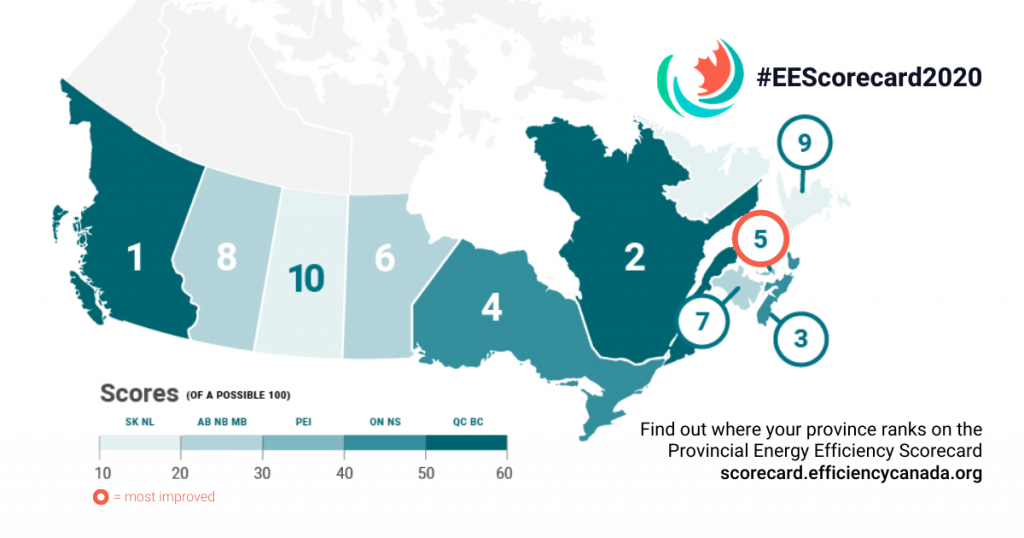The Saskatchewan government often explains its approach to climate change policy as one of “balance,” concerned that any environmental regulations do not do undue harm to Saskatchewan’s economy. This of course has been the primary argument behind the government’s opposition to a federal carbon price, or what Premier Scott Moe called “a job-killing, soul-sucking, unconstitutional” carbon tax. In place of such measures, the government’s 2017 Prairie Resilience climate strategy called for a “made-in-Saskatchewan” solution, one that prioritizes “innovation and technological development.”
Given this position, one would imagine that the government would want to aggressively implement a provincial policy on energy efficiency, which many recognize as one of the quickest and most cost effective ways to start reducing GHG emissions for the simple reason that “the less energy used, the fewer emissions produced.” It is also a demonstrated job-creator, employing over 400,000 Canadians across six industries. That's twice as many workers as are employed in the mining or oil and gas sector. Indeed, energy efficiency would seem to satisfy all the government’s concerns about cost, jobs and effectiveness.

So it is all the more disappointing that Saskatchewan now has the dubious distinction of finishing dead last on Efficiency Canada’s recently released Provincial Energy Efficiency Scorecard. The Scorecard evaluates each province’s energy efficiency policies, including building, transportation and industry out of a score of 100.
This year’s scorecard sees Saskatchewan fall to last place in the country, scoring a dismal 17 out of 100. Saskatchewan's poor showing is primarily due to the lack of a provincially-funded energy efficiency program and a virtually non-existent program to promote the electrification of transportation. While the scorecard rewards Saskatchewan for its recent moves on introducing national model energy codes for new buildings, we are way behind the country in creating a provincial energy-efficiency utility that can promote, fund and finance energy audits, retro-fits and upgrades in existing buildings.
Indeed, Efficiency Nova Scotia–an independent utility funded through electricity rates–is the major reason why that province is now considered a “national leader in cutting energy waste.” The creation of our own energy-efficiency utility could see us make the same strides as Nova Scotia, which has seen 12,000 energy efficient upgrades to homes and buildings, delivering $180 million in annual energy savings while avoiding 1 million tonnes in carbon emissions per year. Rather than the one-time ten percent electricity rebate that the government promised during the election, a “made-in-Saskatchewan” energy efficiency utility could ensure lower energy costs for Saskatchewan residents year after year, all while reducing emissions and boosting local employment.
In every respect, energy-efficiency meets the government’s criteria for what it says it wants in a climate policy. It is low-cost, it is effective and it delivers jobs. In its Prairie Resilience climate strategy, the government states that its opposition to the federal government’s carbon tax "should not be seen as a reluctance to act" on climate change. Yet, if the government cannot even seriously commit to energy efficiency as part of its climate change fight, we have to question whether it wants to fight at all.
Simon Enoch is Director of the Saskatchewan Office of the Canadian Centre for Policy Alternatives.







